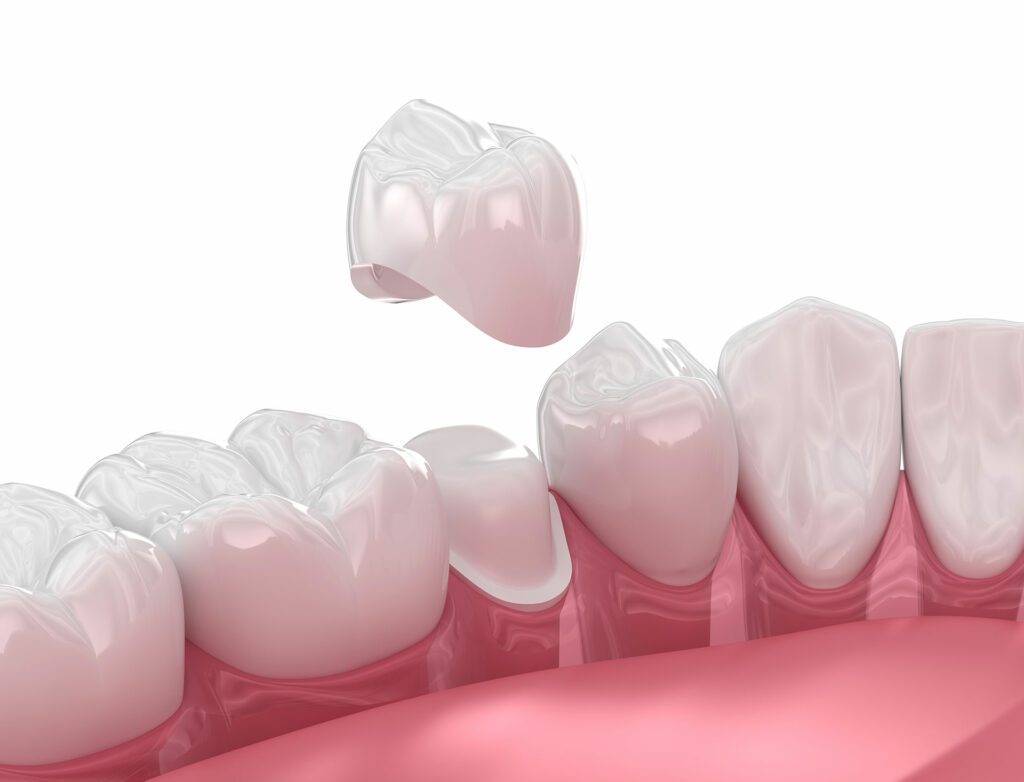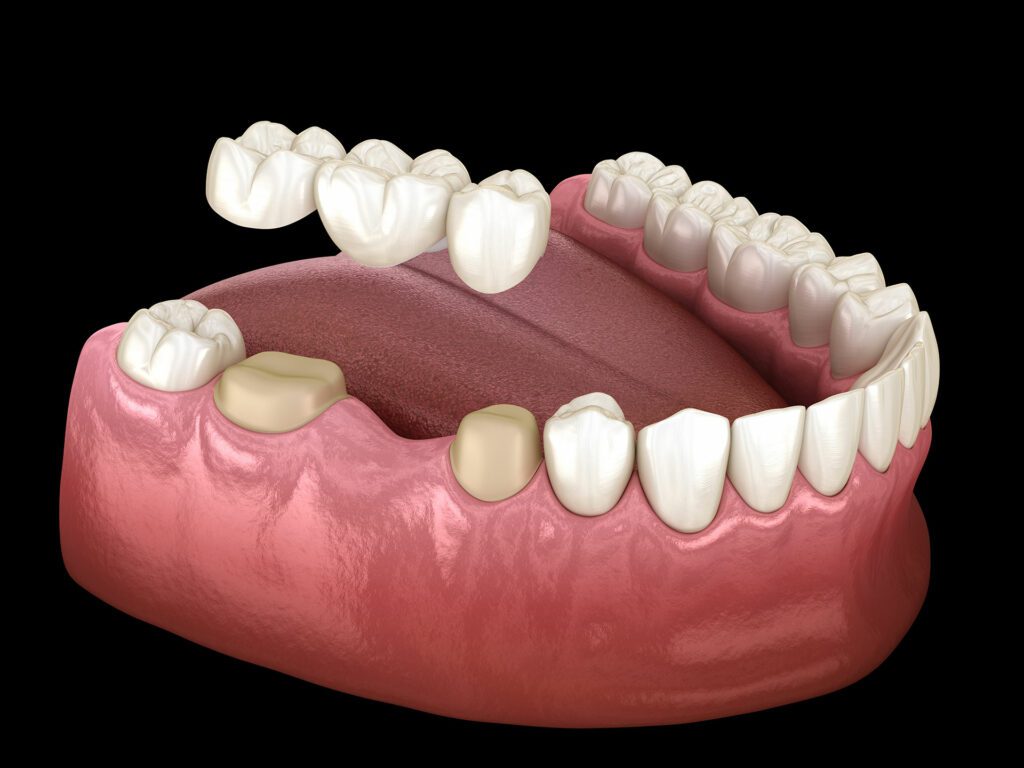Dental crowns and bridges — are they a fit for you?
If the crown fits, get it the same day 👑
Wonder about repairing your smile with crowns or bridges?
Crowns might be your best fit if your teeth are cracked, chipped, or have cavities. They help repair the structure and function of damaged teeth. Bridges restore missing teeth for preserved dental health, comfort, and contour.
Here’s what you should know about them — including getting them in one appointment.

What are crowns?
Think of crowns as protective caps for damaged teeth. They create a new casing for the entire visible tooth, covering damage that lies at or above the gumline.
There are also partial crowns, known as inlays and onlays. These only fill in or cover part of the visible tooth.

What are bridges?
Bridges are replacements for missing teeth, sometimes multiple teeth in a row, that restore the natural contour of your dental structures.
Untreated, a missing tooth causes:
- Bone loss of the jaw
- Strain on adjacent teeth
- Altered speech
- Reduced ability to chew correctly
Bridges prevent these side effects. They offer the appearance of full, healthy teeth while supporting normal eating and speaking functions — and our patients’ confidence!
How can I get them in one appointment?
This is thanks to our friend Derek CEREC — or “Chairside Economical Restoration of Esthetic Ceramics” (it’s a family name). CEREC technology designs and molds dental crowns in one sitting, enabling our team to place them in about two hours.
The method has been trusted by dentists around the world for more than 20 years, boasting millions of happy patients!
What are the steps?
At the core of CEREC is fancy tech called CAD/CAM. It will:
- Take pictures of your mouth
- Send them to our computer
- Design and mold precision porcelain fixes just for you (crowns, inlays, onlays, or bridges)
Then, our team will put them in place!
This is no one-size-fits-all approach. With CEREC, our clinic creates custom fixes for your smile only
How does this help keep my teeth healthy?
Our priority is always to preserve the healthy parts of damaged teeth. CEREC supports this. Its detailed pictures mark the exact contours of healthy tooth remaining — allowing us to protect what’s there by molding each fix to fit your tooth (not the other way around).
What are the long-term benefits of crowns and bridges?
That’s simple! CEREC crowns and bridges are strong, long-lasting, and natural looking
They restore tooth, jaw, and facial structures to support normal functions like speaking and eating.
At Holland Cross Dental, we’re proud to offer you the best and easiest ways to take care of your teeth! Same-day crown and bridge placements are part of that.
Ready for a happier smile?
Get in touch with our friendly team if you have questions about CEREC or need help understanding which solution is right for your smile. We’re always happy to help!